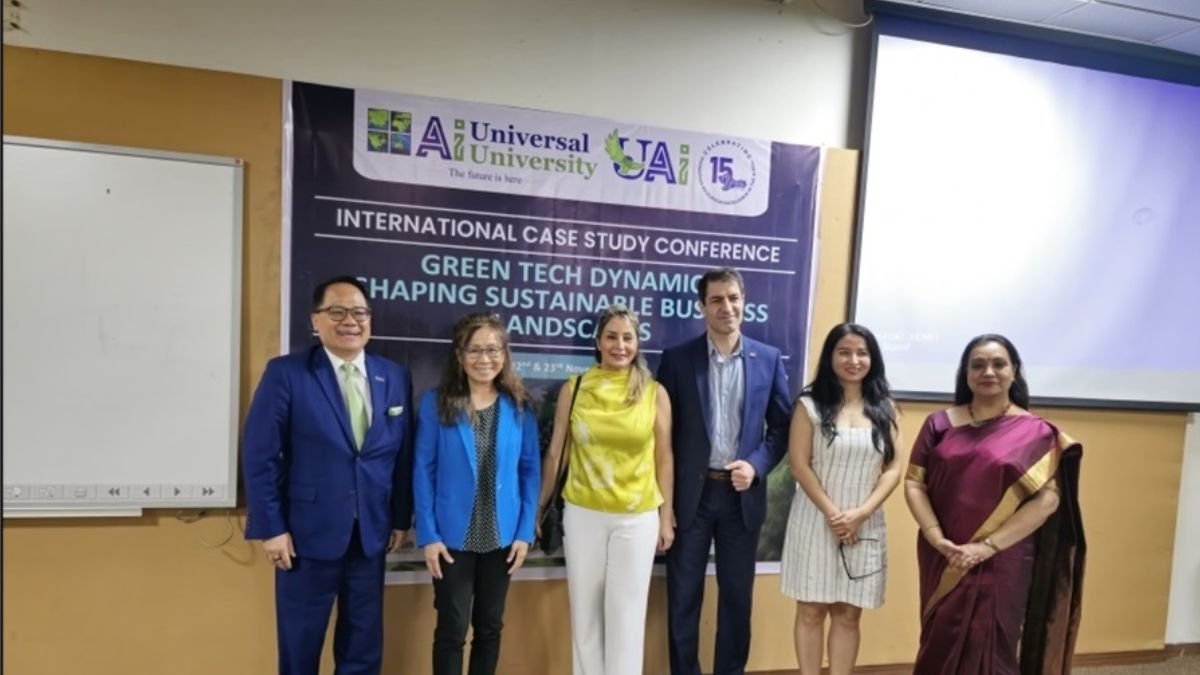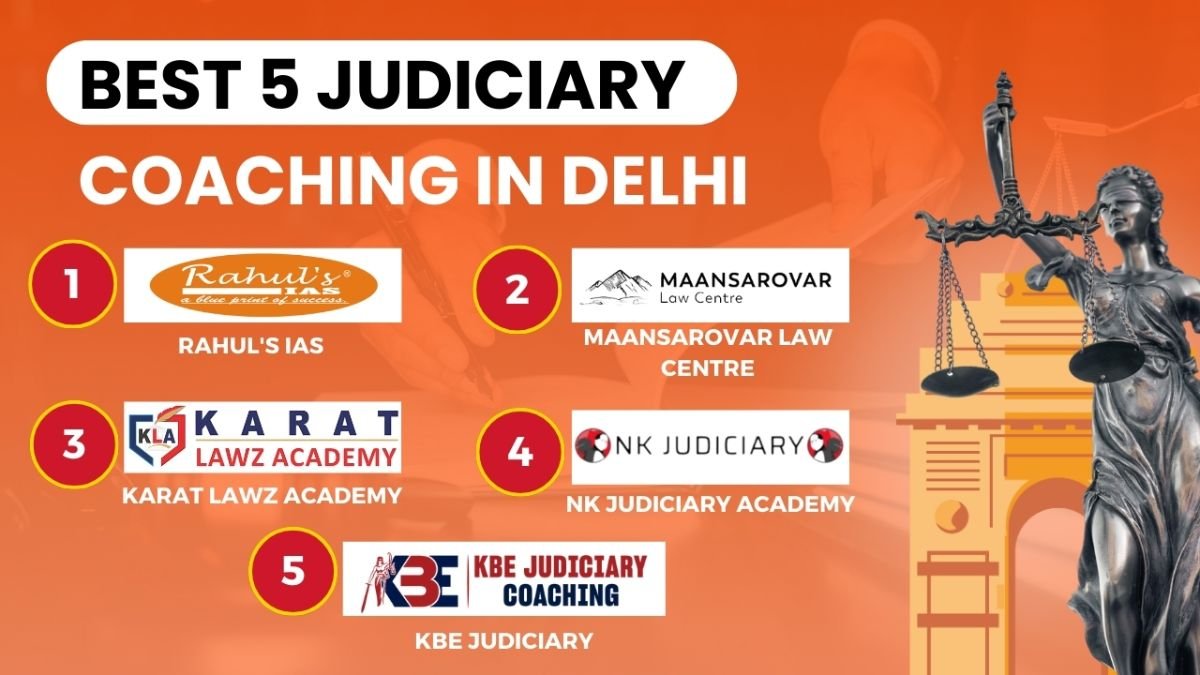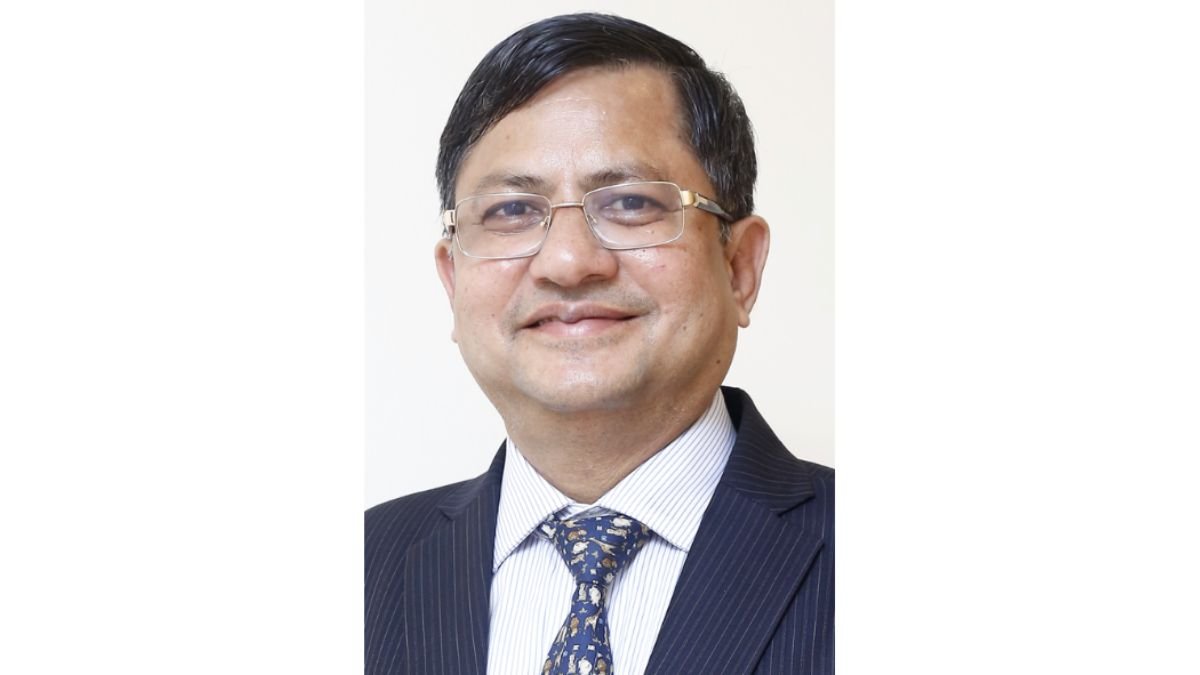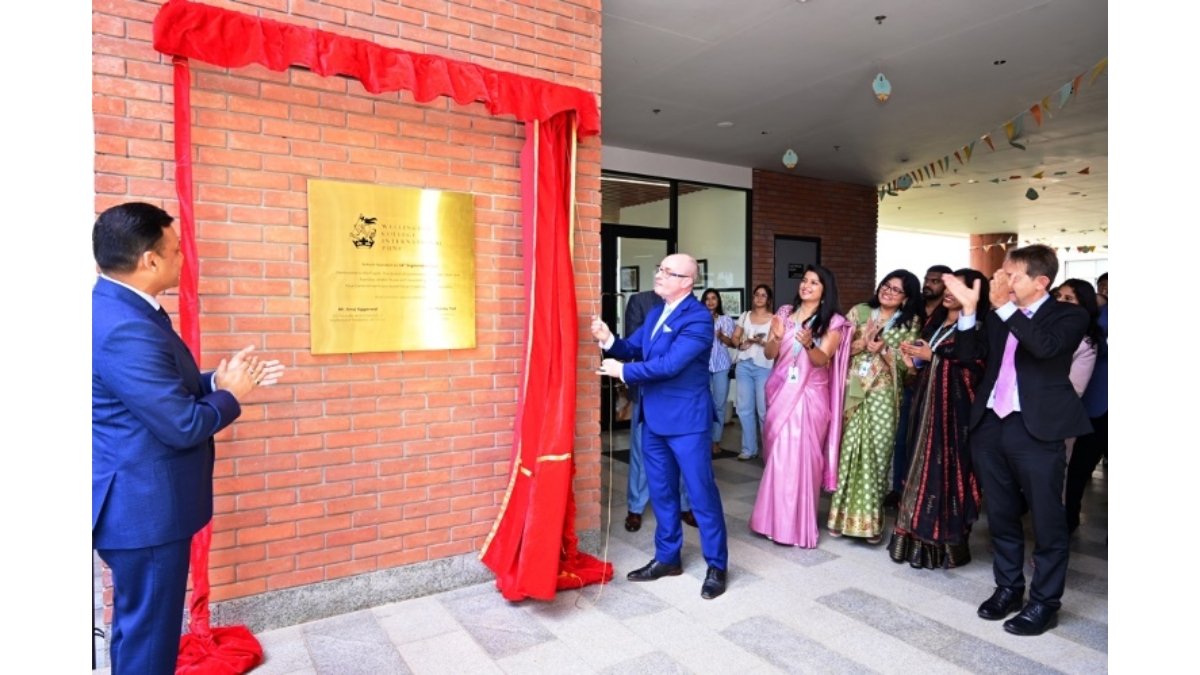AdtU holds HR Conclave 2.0 in Guwahati; experts endorse upskilling, flexible work arrangements, and diversity and inclusion in workplace


Guwahati, November, 29: The Assam down town University (AdtU) recently concluded the annual national-level HR Conclave 2.0 in Guwahati, that discussed exactly on how the HR Leaders need to stay abreast and prepare themselves for the future of work as they adapt to new realities. The conclave, held at Hotel Vivanta, Guwahati, brought together the country’s top HR heads, staffing managers, industry leaders, entrepreneurs, and social skilling organisations across sectors who shared their experiences, insights on the cutting-edge HR trends and practices, and proposed solutions for an effective functioning.
The event began with the lighting of lamp and a welcome address by Mr. Joutishman Dutta, Managing Trustee AdtU, followed by Vice Chancellor Prof. (Dr.) Narayan Chandra Talukdar’s introductory speech on AdtU.
Mr. Joutishman Dutta, Managing Trustee AdtU, in his welcome address said, “Academia and Industry are two different worlds which operate on different pedestals. However, the rapid pace of change in the outside environment is compelling these two different worlds to come together to address and solve some of the real-world challenges. Though educational institutions are training millions of youngsters yet corporate are often complaining that they are not getting the necessary skill and talent required for a job. Thus, allignment of curriculum with industry requirements has become vital. While predicting the nature of jobs that would be available in the future is difficult, the efforts to prepare people for the jobs should continue. I hope the AdtU HR Conclave 2.0 will help us explore ways on how industry and academia can come together to bridge this gap.”
Commenting on the initiative, Vice Chancellor Prof (Dr) Narayan Chandra Talukdar said, “The pace with which the business concepts are fast evolving coupled with a new level of growth has been witnessed by the Indian economy thereby opening up new business opportunities which in turn has brought forward with it new operative challenges. We need to create avenues for employees to develop leadership qualities and people skills in social spaces beyond the workspace. Today, people and organisations need to continuously upgrade and update their skills and learnings to remain relevant and the responsibility of HR is to facilitate this continuous cycle improvement and learning. I hope we will be able to make strategic investment into future employees’ needs in order to create opportunities for leadership development at all levels.”
The keynote speaker for the inaugural session, Sanjay Bose, Executive Vice -President and Head HR of ITC Hotel Group, speaking about current business scenario and jobs availability, commented, “There is room—and need—for greater focus, speed, boldness, and innovation. Resilient leaders view recovery as a journey for their organisation, teams and stakeholders. With the bounce back in the economy led by a favourable business environment, there is a sharp increase in hiring sentiment and activity across most sectors of the economy. Post Covid-19, once again sectors like hospitality, beauty and wellness, manufacturing, real estate, and aviation logistics are back in action.”
The event also witnessed a host of intriguing talks and discussions. The first panel discussion on the importance of re-skilling and upskilling in the aftermath of COVID-19 and fostering gender equality and diversity in workplace was moderated by Kaushik Deka, Executive Editor, India Today Magazine, and had Apurba Mishra, AGM, Amul, GCMMF; Anurag Kirti, Campus Lead- Global Campus Hiring, Wipro; Aniket Dutta, Product manager, Microsoft Corporation; Dhananjay Samarai, Director HR, The Leela Gandhinagar; Prabahan Boruah, HR Operations Head, Dalmia Cement; and Tanvinder Singh Bindra, HR Lead, Cremica as speakers.
“Upskilling and reskilling are go-to strategies to foster organisational development by understanding the workforce’s strengths, abilities and shortcomings. Hence, businesses should administer employee upskilling programs to keep them in line with the ongoing business trends; also, employees are more likely to showcase their best work in a company that attends to their development needs. Upskilling can help employees bridge the skills gaps through continuous professional development,” remarked Wipro’s Anurag Kirti.

Sharing the views on gender equality at work, Mr Samarai of Leela, said that a culture of equality and inclusivity is a powerful tool to drive innovation and growth in any organisation. “Gender dversity in the workplace means that employees are more likely to have various abilities and experiences. Furthermore, fair representation and compensation practices lead to better employee engagement, talent attraction and retention, and efficiency. Moreover, today, it is not only about having diversity within a company but leveraging that diversity to produce better products and services,” he added.
The second leg of the panel discussion, moderated by Dr Sriparna Bhuyan Baruah, Head of Centre for Industrial Extension and Director I/C), Indian Institute of Entrepreneurship, focused on ‘Virtual Hiring – Trends, Opportunities, and Impact’, and the ‘Impact of Remote Work on Employee Performance’. Speakers of this panel included Sayed Nahid Kalyum, Senior Manager B2B, Extra Marks education; Cristia Sangma, Senior HR BP, Star Cement Limited; Suruch Kumar, DGH HR, Bharti Airtel Limited; Dipanita Jaiswal, Managing Director, Brahmaputra Tele Production, Pvt, Ltd; and Atma Godara, HR Manager, Netflix.
Speaking on the current trend of virtual hiring and post-COVID work from home culture, Atma Godara of Netflix said, “The hybrid working model, virtual onboarding, and online meetings – once sporadic words, have now become quotidian. Virtual employment has a lot of pros – we are not limited to geographical proximity anymore. With the booming gig economy, we can hire the best talent from any corner of the world who otherwise may not have considered working at the company due to family obligations, expenses, and lifestyle changes. Virtual work arrangements allow specially the millennial workforce to travel, rejuvenate, and get back to work with a happier mindset. Remote workers stay productive when they manage their work. When you don’t micro-managing or set working hours or constant make checking in calls, employees tend to do a better job.”
The event witnessed great attendance and enthusiastic participation. It ended with ethnic cultural performances and felicitations of dignitaries.
If you have any objection to this press release content, kindly contact pr.error.rectification[at]gmail.com to notify us. We will respond and rectify the situation in the next 24 hours.






